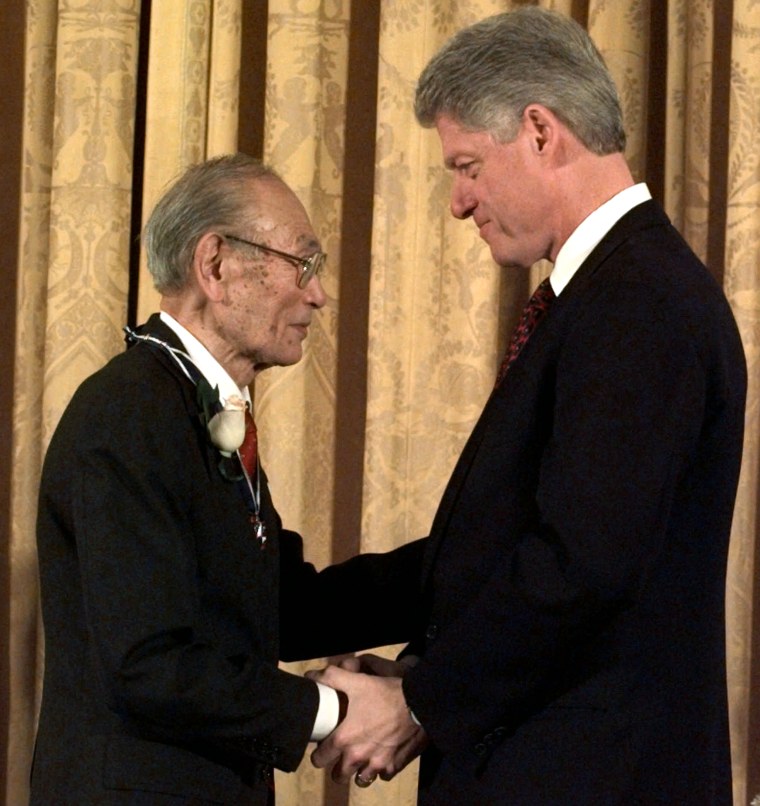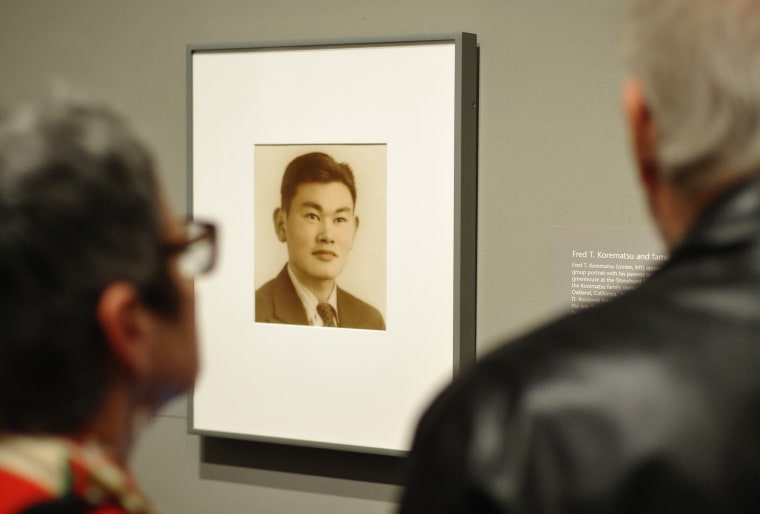Legal scholars have long considered Korematsu v. United States as a part of the “anticanon” — a collection of high-profile Supreme Court cases that were wrongly decided — alongside Plessy v. Ferguson and Dred Scott v. Sandford.
The Korematsu ruling 75 years ago held that the executive order authorizing World War II-era Japanese-American incarceration was constitutional. Plessy upheld the constitutionality of segregation and Dred Scott held that people of African descent could not be U.S. citizens.
The Korematsu case has a conflicted legacy: While Fred Korematsu’s conviction was eventually overturned and the decision has been repudiated by numerous scholars, judicial nominees, and the Supreme Court itself, some argue that the principles at the foundation of the decision are still prevalent today. And while some lessons have been learned, there is more work to be done.
"The first executive order that President [Donald] Trump issued Jan. 27, 2017 was about the Muslim [travel] ban and it immediately raised the alarming parallels to the forefront of my father’s fight for justice and the racial profiling of the Japanese American community in 1942,” his daughter Karen Korematsu, executive director of the Korematsu Institute, said.
‘Correct history’
President Franklin D. Roosevelt signed Executive Order 9066 on Feb. 19, 1942 authorizing the secretary of war to declare that portions of the United States were military areas and paving the way for the forced relocation and incarceration of about 120,000 people of Japanese descent, many of them U.S. citizens.
The then 23-year-old Korematsu, who was born in Oakland, California, refused to obey a relocation order and was arrested. The case was appealed to the Supreme Court, which ruled 6-3 that the order was constitutional.

The U.S. government provided ”token compensation” to some Japanese Americans after the war, Alice Yang, a professor of history for the University of California, Santa Cruz, previously wrote for Densho, a nonprofit encyclopedia of Japanese-American history.
The push for redress was revived in the ‘60s and ‘70s, Yang wrote. And a congressional commission concluded in 1982 that the executive order was “not justified by military necessity” and that a “grave personal injustice” had been done.
Korematsu’s conviction was overturned by a federal district court in 1983, with his legal team arguing that the federal government had manufactured its claim of “pressing public necessity.” In 1998, Korematsu received a Presidential Medal of Freedom. Korematsu, who died March 30, 2005 at the age of 86, would have turned 100 this year.
“This is a pretty special case,” Dale Minami, the lead attorney on Korematsu’s 1983 team, told NBC News. “This was a case that involved a massive travesty of justice to a minority group … who were denied basic due process, the right to a trial, the right to a notice of the charges, the right to attorneys even. They were just summarily whisked — banished essentially — to these prisons for indefinite confinement.”
“We thought that this was a chance to not only correct history ... but also impair one of the worst precedents ever composed by the Supreme Court,” Minami added.
Congress passed the Civil Liberties Act of 1988, providing a formal apology to Japanese Americans, as well as $20,000 in reparations for surviving citizens and legal permanent residents who had been incarcerated.
In May 2011, the Department of Justice issued a “confession of error” acknowledging that by the time the Korematsu case and the Hirabayashi case — an earlier opinion dealing with the constitutionality of Roosevelt's order — had reached the Supreme Court, “the solicitor general had learned of a key intelligence report that undermined the rationale behind the internment.”
“But the solicitor general did not inform the court of the report,” acting Solicitor General Neal Katyal wrote in 2011. “Instead, he argued that it was impossible to segregate loyal Japanese Americans from disloyal ones.”
But while the convictions of Korematsu and others were overturned in the '80s, the Supreme Court did not formally repudiate the case until its 2018 ruling on the Trump travel ban in Trump v. Hawaii.
In a 5-4 ruling upholding the ban, Chief Justice John Roberts wrote, “The forcible relocation of U.S. citizens to concentration camps, solely and explicitly on the basis of race, is objectively unlawful and outside the scope of presidential authority.”
For some, that rejection rang hollow.
“While he gave a symbolic victory about the Korematsu case, he then reaffirmed the worst parts of Korematsu: that we will defer to the president when he declares a national security problem,” Minami said of Roberts.
“For decades, Korematsu has been viewed as a cautionary tale. But until Hawaii, it had never been overturned—a fact that set it apart from its fellow antiprecedents,” Katyal, who argued the Muslim travel ban case before the court, wrote in an essay published January in the Yale Law Journal. “And yet, when given the chance to memorialize Korematsu’s lessons, the Court instead made almost every mistake in Korematsu’s playbook.”
But despite the ruling, both Karen Korematsu and Minami remain hopeful.
The Korematsu Institute has provided thousands of lesson plans about Japanese-American incarceration to teachers in the U.S. and abroad, the group said. Karen Korematsu, who regularly gives talks about her father and the case to new federal judges, legal groups and students of all ages, said that the popular understanding of the case is expanding.
“Five-year-olds and six-year-olds can understand when they have done nothing wrong and they have to go to prison. Kids understand moral principles,” she said.
Fred Korematsu’s birthday, Jan. 30, is observed in several states as the Fred Korematsu Day of Civil Liberties and the Constitution, and a bipartisan bill that would posthumously award him a congressional gold medal was introduced last month.
Democrats in Congress have also introduced a bill, the Korematsu-Takai Civil Liberties Protection Act of 2019, that would specifically bar the imprisonment of citizens due to their race, religion, national, sex, gender, ethnicity or disability.
“There’s a difference between learning and understanding lessons and applying them … people can know history but, for political expediency, refuse to apply its lessons,” Minami said. “History itself is not always the best antidote to future mistakes.”
“That being said what I’ve seen in the years passing ... is a much greater awareness and knowledge of what happened to Japanese Americans, and that it was absolutely wrong.”
Follow NBC Asian America on Facebook, Twitter, Instagram and Tumblr.



